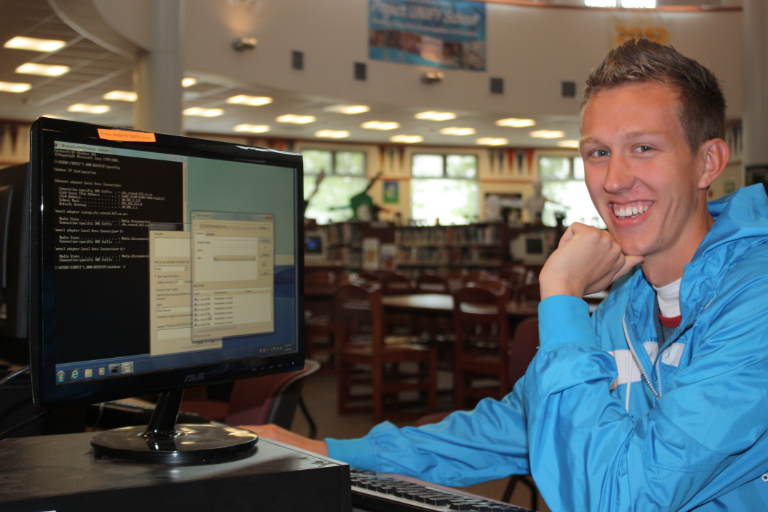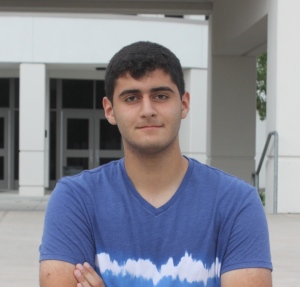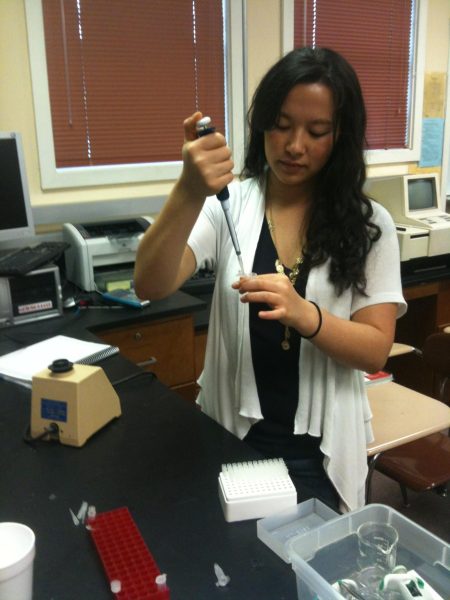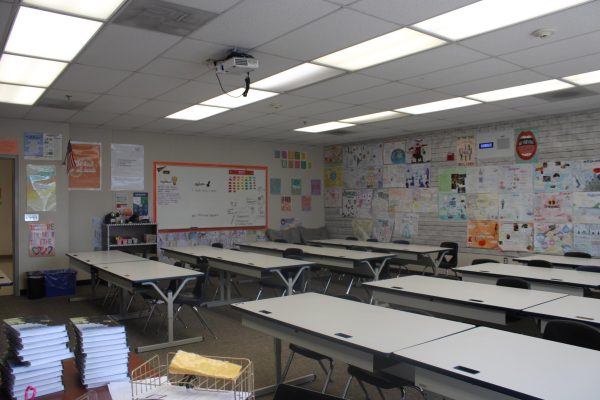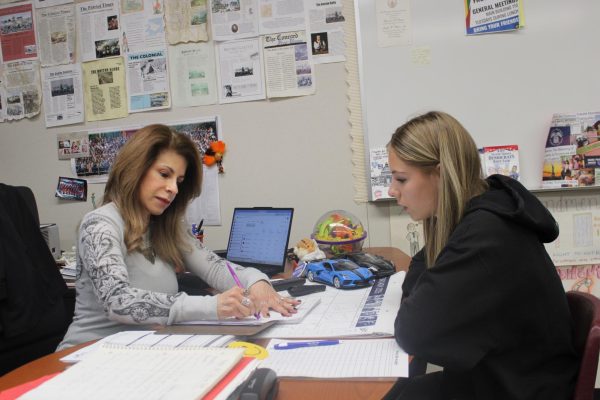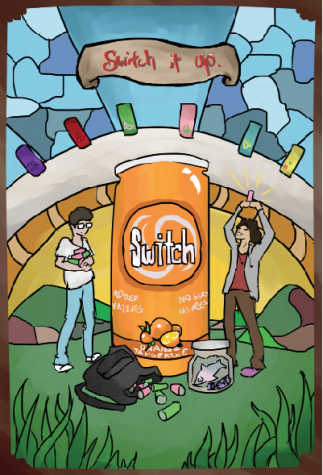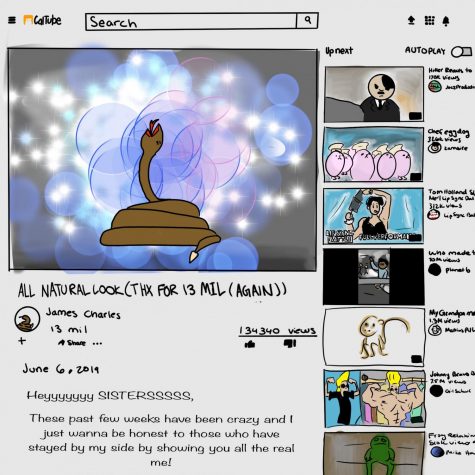This hacker is no slacker
Who said hacking is a crime?
Cal High senior Marshall Richins placed fourth out of thousands in a Google Chrome hacking competition early in March.
Richins heard about the hackathon from his friend, senior Drew Downs, and decided to check it out.
“The point of the competition was to hack into a Chromebook that runs on Chrome OS, which is essentially Linux-based,” said Richins, who also successfully managed to hack Cal’s schoolloop in the past.
A Linux-based system is defined as a modular Unix-like operating system. It derives much of its basic design from principles established in Unix, an operating system developed at AT&T’s Bell Labs research center during the 1970s and 1980s.
The competition was divided into three categories: total system failure, system failure with option to reboot, and corruption of file systems through Google’s servers. The servers respond to requests across a computer network to provide, or help to provide, a network service.
Richins attempted total system failure, and while there were not any cash prizes beyond first place, he was offered to visit Vancouver for a ceremony honoring the competitors. He declined the offer for financial reasons.
Richins was able to beat out thousands of hackers of all ages by altering the motherboard of the Chromebook.
“The motherboard controls how all the hardware component parts talk to each other. When you turn on a computer, it takes a quick measurement of how fast the parts communicate with each other,” Richins said. “I changed it so that it would not be accurate on how fast these parts communicate with each other. Now these parts couldn’t communicate with each other, and it crashed the computer.”
Chrome OS is not the first system which Richins has infiltrated. He also found a gaping hole in the security of Schoolloop, the frequently used online application that allows high school students to view their grades online and communicate with teachers.
“My AP Computer Science teacher, Mrs. Nguyen, was talking about a high school hacking competition called High School Hacks for the 8th and 9th of March in San Jose. Sadly, I was going to be at MUN that weekend, but I submitted my code for it,” Richins said.
Richins noticed that Schoolloop, unlike many online accounts like Gmail and Apple ID, has no login rejection such that, after a certain number of attempts at failed logins, the user will get blocked for a certain amount of time.
Richins took a couple of computers and rendered a dictionary of all possible passwords for login information.
“I ran my own user name and all these passwords through a program called Hydra and I linked it to Schoolloop, and it just plugged in names a million times a second,” Richins said. “It eventually took me about two days to get in to my account, which was protected by a nine-digit password sequence.”
Richins quickly brought this issue to the attention of school administration, which is currently in contact with Schoolloop, Inc. about this security problem. What startled Richins the most was that anyone who did this could, with a teacher or administrative user name, access these accounts to alter grades and/or attendance records.
Richins’s passion for computers began at an early age. When most kids saw computers as things to play games on, he saw limitless opportunities to change the world around him.
“As a kid, I was just fascinated by computers,” Richins said. “When I was six, my parents told me I accidentally self-taught myself algebra by finding a decay algorithm for battery life on a trip to Utah from Idaho.”
Richins said while he does not remember the ride, he does remember desperately wanting to save the battery.
“After that, I realized what code is and what it does,” Richins said. “Code is just commands given to computers to act on different scenarios, and these commands have loopholes in them that can let you change the world around you, for good or for better.”
Richins credits this realization to his specific interest in hacking. He learned computer coding and computer languages at a very young age. He began learning C++, which runs all Windows applications, then learned C-sharp for robotics, then Python, and then Java.
With C-sharp, Richins was in charge of making the artificial intelligence (AI) of how his team’s robots would make decisions. He designed for the robots to use sensors to determine by color, in a game to pick up balls and place them in a bucket, the best option to pick up and drop in.
One of Richins’s most relevant creations came purely out of spite.
“About three years ago, I was playing a game on my old iPod, and I accidentally clicked on an advertisement at the top of the screen, and I got really mad,” Richins said. “So, I went into making an anti-ad app. It funneled Internet traffic through a filter and blocked out predetermined ads like pop-ups and banner ads.”
He said that he did not publish the app and sell it for profit, and could not comment on if he has made any profit off any of his designs.
Richins is not currently participating in any computer competitions, but is considering participating in “LA Hacks”, a prestigious hackathon hosted by UCLA from April 11-13.
Besides his normal work, he has read about and is interested in the field of car computers.
“Almost all modern cars have all their systems run by computers,” Richins said. “Radios work by decoding radio frequencies, so you can use AM radio frequencies and reprogram a car’s computer.”
Although he admits this is dangerous, he is intrigued by the concept of it.
Right now, Richins is focused on his studies and college, but is looking forward to the future. He plans to pursue his interest in computer science and network security in college at Utah State University, which has the second highest-ranking undergraduate work in computer science next to Massachusetts Institute of Technology (MIT), the university from which he wishes to receive a master’s degree.
“I want to go into the field of computer security to help people,” Richins said. “My dream job would be private security contracting, which essentially allows you to do anything you want computer-wise for any number of corporations. Also, it’s a very lucrative business.”
